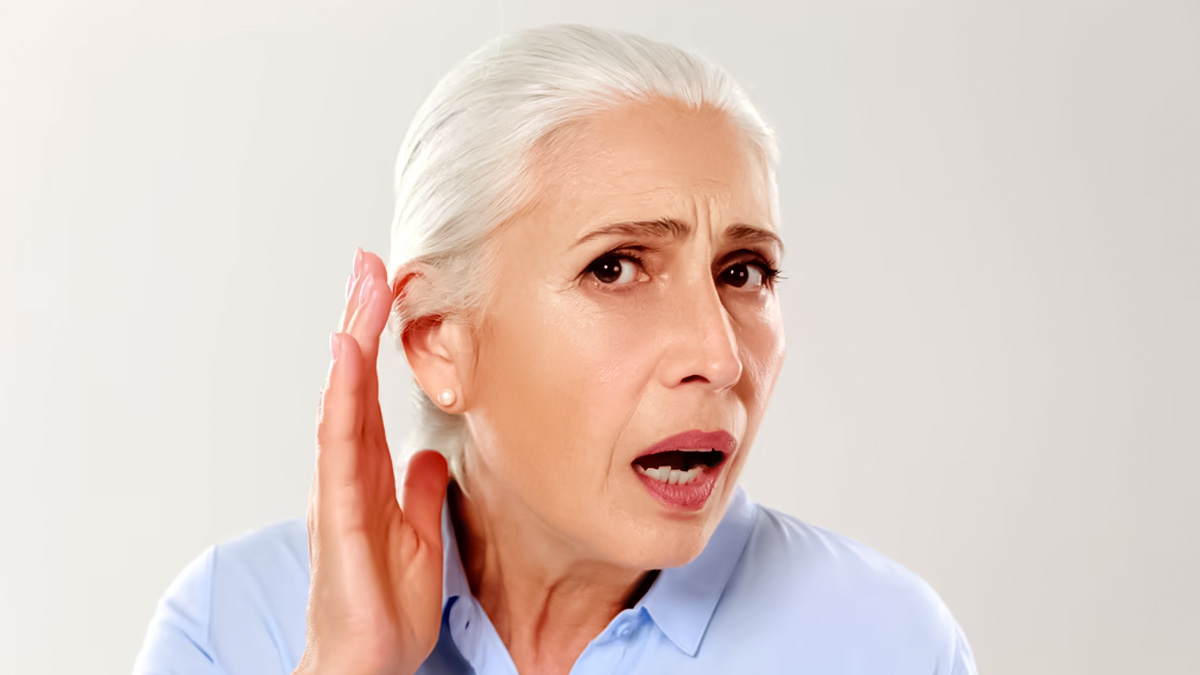
Hearing disorders that go untreated might deteriorate over time. People who have difficulty hearing frequently do not open out about it and instead experience stress and frustration. When their hearing is impaired, they become exceedingly confused and unresponsive. As a result, it is critical to understand what type of hearing loss you are experiencing.
Table of Content:-
Over 1.5 billion people worldwide suffer from hearing loss, according to the World Health Organisation (WHO). As per WHO, this figure might climb to 2.5 billion by 2050. Noise, sickness, aging, and inheritance can all cause hearing loss.
"Presbycusis is defined as age related progressive sensorineural hearing loss. In many older adults, this is an inevitable part of ageing. However, it is strongly proven that coexisting systemic diseases like diabetes, hypertension, and chronic kidney diseases are known to accelerate hearing loss," said Dr Devkumar Rengaraja, Consultant-ENT & Skull Base Surgeon, Fortis Hiranandani Hospital Vashi.
Protect Your Ears from Loud Noises
Prolonged exposure to loud noises can lead to hearing damage over time. Use ear protection, such as earplugs or earmuffs, when attending concerts, sporting events, or using noisy machinery. Be mindful of the volume when using headphones or listening to music, and avoid high volumes for extended periods.
Also read: Ignoring Your Hearing Ability? Expert Explains The Importance Of Early Detection For Hearing Loss
Get Regular Hearing Check-ups
Regular hearing evaluations are essential for early detection of any hearing problems. Older adults should undergo hearing screenings at least once a year to monitor their hearing health and identify any changes promptly.
Maintain a Healthy Lifestyle
A healthy lifestyle can significantly impact overall health, including hearing health. Encourage regular exercise, a balanced diet, and adequate hydration. Avoid smoking and limit alcohol consumption, as both have been linked to increased hearing loss risk.
Be Cautious with Medications
Some medications, known as ototoxic drugs, can harm the auditory system. If you are an older adult, discuss your medications with your doctor, and inquire about potential side effects on hearing. If there are alternatives available, consider using them.
Control Chronic Conditions
According to Dr Rengraja, certain chronic conditions like diabetes and cardiovascular disease can contribute to hearing loss. Manage these conditions effectively by following your doctor's advice and maintaining a healthy lifestyle to reduce the risk of hearing damage.
Reduce Earwax Buildup
Excessive earwax can lead to hearing problems. Avoid using cotton swabs or inserting objects into your ears, as this may push the wax deeper and cause blockages. Instead, consult a healthcare professional for safe earwax removal.

Use Assistive Listening Devices
In environments with background noise, older adults should consider using assistive listening devices to enhance sound clarity without raising the volume excessively. These devices can help you hear better in challenging listening situations.

Engage in Active Communication
When engaging in conversations, make sure to face the speaker and ask them to speak clearly if necessary. Reducing background noise can make it easier to hear and understand what is being said.
Also read: Cochlear Implants: A Game-Changer Solution For Hearing Loss
Address Hearing Loss Promptly
If you notice any changes in your hearing, do not delay seeking help from a hearing healthcare professional. Early intervention and appropriate hearing aids or other interventions can significantly improve your quality of life.
"To avoid the age realated hearing loss, it is essential to have regular health check-ups especially as a person grows older. In addition, it is recommended that one should not listen to loud sounds for long duration as it can deteriorate the hearing power. It is also a good idea to monitor the hearing capacity in adults who are on medication that can cause ototoxic effects," Dr Rengraja suggested.
By following these preventive tips, older adults can take proactive steps to protect their hearing health and maintain an active and fulfilling lifestyle.
Also watch this video
How we keep this article up to date:
We work with experts and keep a close eye on the latest in health and wellness. Whenever there is a new research or helpful information, we update our articles with accurate and useful advice.
Current Version